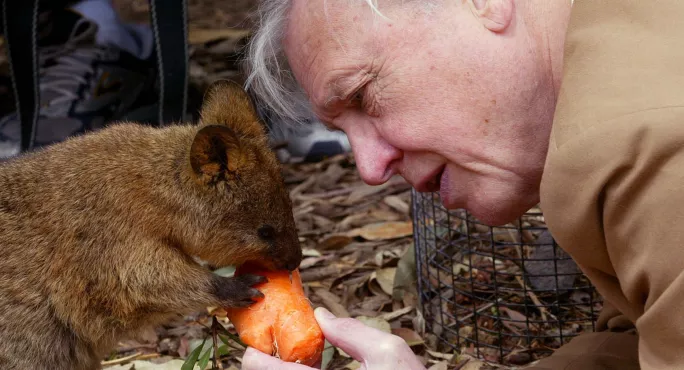- Home
- David Attenborough films should be mandatory in schools
David Attenborough films should be mandatory in schools

This half-term, after the most challenging seven weeks in teaching history, I decided to settle down and watch David Attenborough’s new documentary, A Life on Our Planet.
So, as I nestled on the sofa with my children, I felt proud that, if I have taught them anything at all, it is who David Attenborough is. He isn’t the David Walliams or Jamie Vardy type of famous; he is a different kind of famous. But the kids were happy with our choice of viewing.
We cracked open the half-term chocs (er, wine) and my husband mentioned that the series was purely autobiographical. Fine. I love an autobiography.
Ten minutes in, I was hiding behind my cushion. I promptly renamed our Friday viewing We are Screwed Planet.
A terrifying documentary on the climate emergency
I wasn’t alone. My seven-year-old asked at least 750 doom-and-gloom questions. The 11-year-old was silently sobbing. The 15-year-old was trying to work out if his hair wax had palm oil in it, while the 17-year-old (a geographer) proclaimed that, unless China and the US did more to stop climate change, we were doomed.
As I sat there, I realised that despite their differing ages - they span key stages 2 to 5 - my children were all profoundly affected by this documentary. Despite the 10-year age gap, they all accessed the programme at their own levels.
There is no doubt, it is a terrifying documentary on the climate emergency, highlighting the impact of deforestation. Attenborough is creative in the way he teaches us about the repercussions of the human invasion of so much of the rainforest. Even my seven-year-old could understand that mixing wild animals and humans ends badly: that loss of biodiversity enables the rapid spread of new diseases from animals to humans (hello, Covid-19).
It’s about saving ourselves
What was surprising was that my Gen-Z children’s appreciation of the natural world around them is astonishingly small - not comparable with their grasp of technology, for example.
Trying to ignore the possible gaps in my parenting, I wondered how many children - actually, let’s include adults in this - know what an anteater looks like? Or how a bird flies, or even why millipedes have up to 200 pairs of legs? It seems that too many of us are just too caught up in our own business to focus on what is possibly the most pressing thing: the natural world.
Back in the world of Netflix, having answered the 750 questions, shared the Kleenex and researched hair wax on my science-technology smartphone, I ventured out from behind the cushion at around the point David Attenborough stated: “It’s not about saving the planet, but about saving ourselves.” I think this will become one of the most powerful quotes of our time.
Invigorated, we each pledged to change our ways, in some small way.
Mandatory viewing
But the conversation made me think about the privileged experience my children had just had, simply because we have a smart TV, wi-fi and, in this case, a Netflix subscription. Millions of kids and their families won’t have access to what, in my view, should be mandatory viewing.
It is possibly one of the most powerful and influential pieces of television I have ever watched. I can’t see Netflix waiving their subscription fee for the greater good, which means that for millions, Attenborough’s message will go unheard.
Thankfully, the final 30 minutes of the documentary offer the opportunity for resolution, and I realised then that maybe schools could be involved in creating similar hope.
Even with the best science teacher in the world, and incredible resources, no one could recreate the before and after shots that David Attenborough has in his library of nearly 70 years’ worth of documentary-making. Wouldn’t it be a unique opportunity for all schoolchildren to share in his life’s work?
Twinkl thinks so, with a set of resources available, along with lots of useful content. With climate change such a pressing issue, surely every child should have the opportunity to watch David Attenborough’s documentaries in the classroom?
What better supply teacher could there be? After all, in the words of Ofsted, his quality of teaching and learning is outstanding, and the outcomes for the children are life-changing.
Emily Gunton is director of music, head of co-curricular and outreach and school consultant teacher at Blackheath High School
Keep reading for just £1 per month
You've reached your limit of free articles this month. Subscribe for £1 per month for three months and get:
- Unlimited access to all Tes magazine content
- Exclusive subscriber-only stories
- Award-winning email newsletters



